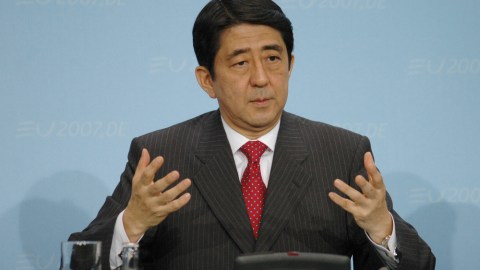Prime Minister Abe Calls Whaling a Japanese Cultural Right

What’s the Latest?
Japanese Prime Minister Shinzo Abe wants to resume his nation’s commercial whaling ventures in the Antarctic seas despite the International Court of Justice’s ruling in March that Japan’s whaling program did not qualify as “scientific research.” When asked about the the controversial nature of whaling, Abe played the culture card:
“[It’s] regrettable that this part of Japanese culture is not understood.”
Prime Minister Abe’s comments were supplemented by claims by Agriculture Minister Yoshimasa Hayashi, who calls international anti-whaling sentiments “…a cultural attack, a kind of prejudice against Japanese culture.”
What’s the Big Idea?
The jury is still out on whether whaling is to the Japanese as bullfighting, another controversial cultural practice, is to the Spanish. But one thing that isn’t up for debate is whether the Japanese whaling program is actually “scientific research” (hint: it isn’t). “Scientific research” is a loophole that allowed Japan to kill approximately 3,600 Antarctic Minke whales over a nine year span until the ICJ’s ruling. Although commercial whaling still occurs in countries such as Iceland and Norway, Japan signed an international moratorium on the practice in 1986 while those two others did not. “Scientific research” is a thin veil under which Japanese commercial interests attempt to navigate around international law to support an illegal whale-meat industry.
But Abe and Hayashi’s comments do set the table for a rather intriguing debate around cultural rights. I’m drawn back to the example of bullfighting (itself in decline) and wonder where the delineation point is between a cultural tradition and the outside world’s disgust for said tradition. Does this sort of thinking inevitably lead civilization to push for homogenization?
What do you think?
Read more at Al-Jazeera and BBC
Photo credit: 360b / Shutterstock.com




